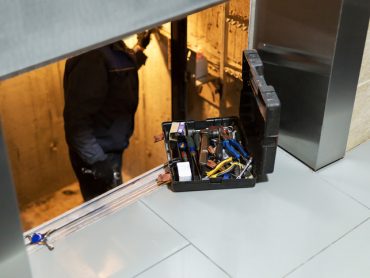Summarizing the Financial Consequences of the Pandemic
Is COVID-19 the Armageddon for the hotel industry? That’s the first question I asked Dr. Donald W. Wise, co-founder and senior managing director of Turnbull Capital Group. With over 36 years of investment banking experience in the hospitality industry, he and this firm have been involved in roughly $20 billions of advisory, consultation, note sales, preferred equity and debt placements, and transactional engagements on both the buy-side and the sell-side.
Given our current state of affairs, it behooves all senior executives and aspiring hoteliers to know a bit about the behind-closed-doors financing of the underlying asset and what happens when owners go into arrears.
Tell me how your world has changed since entering the pandemic.
We’ve been working nonstop ten hours a day and six days a week expanding our senior roster from three to 15, thirty-year Senior Managing Director distressed hospitality veterans. This is really our fifth ‘rodeo’ including VMS Realty Partners, Resolution Trust Corporation, 9/11, and the 2008 financial crisis. The only difference is that this one has no playbook in that we don’t know how this will end or when.
What are the symptoms of a property being in serious financial distress?
Several signs. First are extreme layoffs. Here, Covid furloughs may cloak the underlying labor reductions. Second is a slowness in paying of debt service. Again, Covid has allowed many owners to enact 90 days of forbearance, with some lenders adding a further 90 days or more. This basically ‘kicks the can down the road’ as the interest and quite possibly some extra fees are added onto the outstanding loan balance. Third is the cannibalization of FF&E reserves to pay for day-to-day expenses. Fourth would be vendor liens cropping up for basic services, not to mention a failure to pay local property or accommodations taxes. I believe AHLA’s CEO Chip Rogers estimated that two-thirds of hotels might not be able to make their debt service in the coming six months, and this maybe a conservative estimate.
How does an owner seek alternate financial arrangements?
It all gets down to a matter of equity. Aligned with fresh new partner provided equity is having the right box, a compliant owner and useable capital stack. Typically, when we look at equity or debt financing, our equity partners prefer a branded product. But that does not exclude strong independents and boutique hotels with special circumstances, such as a well-located resort with an array of amenities. We diligently have our team of senior underwriters examine the macro factors of product type and location, then the micro factors such as reputation, replacement cost and product quality – that includes the date of opening or the most recent product improvement plan (PIP). If all of this is in order, then a new fresh preferred equity infusion and debt restructuring may be possible. I say ‘may’ because circumstances are still quite inconsistent and volatile.

When you work on a deal, what time horizon are you looking at for turnaround?
Typically, we’re looking at three to five years. Think about it; we’re now talking of a bona fide survival culture versus a service culture. We are a long way off from any vigorous occupancy growth; we target occupancy recovery to historic levels subject to a possible delta factor for a paradigm shift in our industry. The property is surviving on local and typically leisure traffic. Until we see a restoration of confidence in travel to rebuild corporate and convention business, that’s it. This is not likely happening in the immediate term. Identification of a vaccine is a start. But time is still needed to confirm any vaccine efficacy and ramp up mass distribution.
Are there levels of deals?
There really is a need to have a small cap facility to provide preferred equity for amounts below $2.5 million for the smaller hotel owners. Larger hotels have other alternatives to get creative and can consider options such as a larger $3.0 million to $100 million preferred equity infusion on a hotel of a portfolio of hotels or taking on a ground lease with extended repayment terms to unlock capital for short-term repayment requirements.
How important is a flag or brand in this process?
A brand brings value and equity of debt provider confidence. Loyalty programs can deliver a substantial number of the guests into any property. They also provide a recognizable set of brand standards and a template for core operations. But the numbers have to work with the charges the brands receive in fees.
Anything else you want to add?
As is often opined, the hotel business is not over-built; it’s under-demolished. Many hotels will not make it through this pandemic – and that is regrettable. Fear not, with zoning changes there are other uses for these properties. I’m convinced the hospitality industry will come through this, leaner and stronger.




